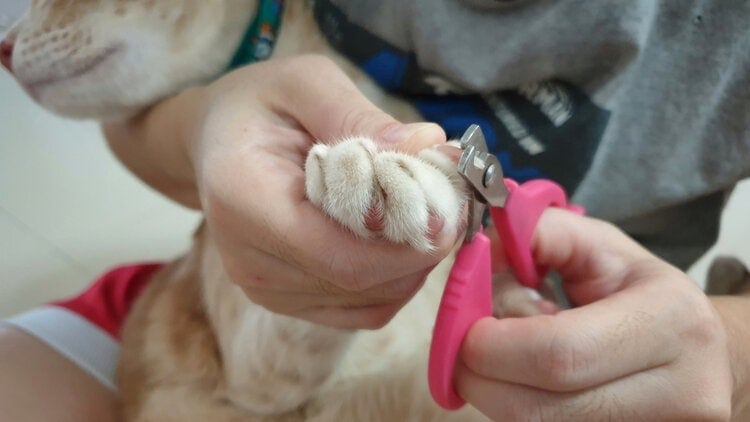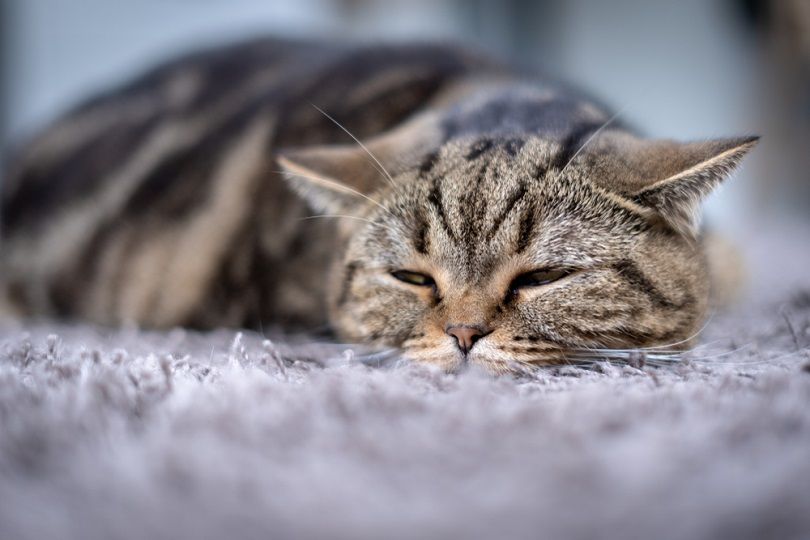Can Cats Eat Plantains? Vet-Reviewed Risks & Healthy Treats
Updated on
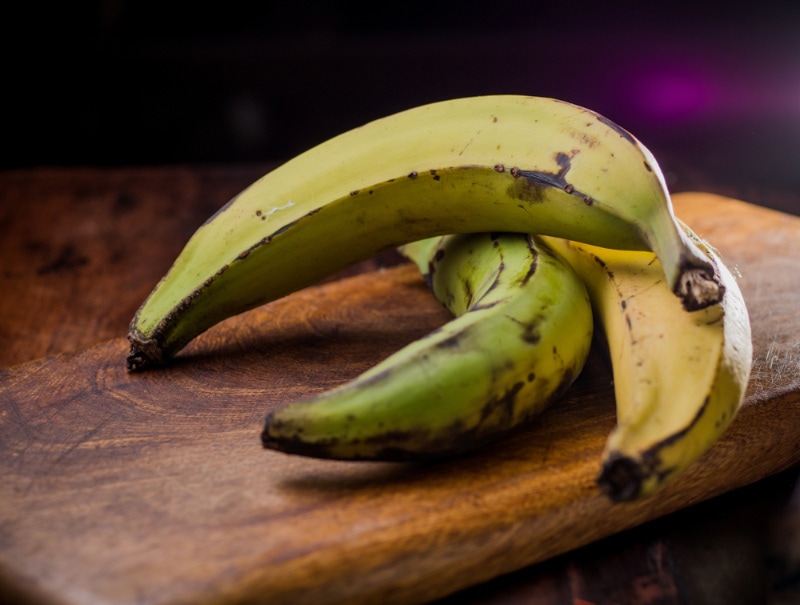
Click to Skip Ahead
We love to spoil our pets. They give us so much and ask for little in return, so a small treat every now and then can make us and our pets happy.
If you want to know if it’s okay to give your cat a bit of plantain but aren’t sure if it is good for felines, know that plantains are not toxic to cats in any way but might cause stomach upset.
In this article, we dig into plantains and cats and whether felines would even want to eat plantains to begin with.
What Are Plantains?
Plantains are originally from Southeast Asia but are grown in tropical areas worldwide. They are like bananas’ bigger and tougher cousins, and both belong to the Musaceae family.
Unlike bananas, plantains aren’t often eaten raw due to how tough they are. Unripe plantains are green and yellow in color, but when fully ripe, they are very dark brown, almost black. At this stage, they are sweet but starchy, and some believe that they taste a bit like bananas.
Eating a plantain typically involves boiling, mashing, or frying them, or they can be grilled and steamed like a potato.
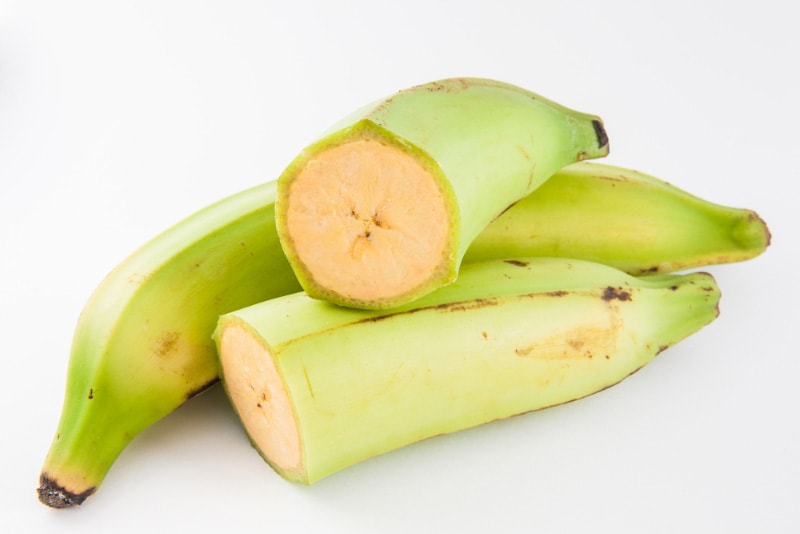
Can Cats Eat Plantains?
The nutritional benefits of plantains include high levels of potassium, which is great for muscle health, and they are high in antioxidants in the form of vitamin C, which boosts the immune system. They are also high in fiber, which aids in digestion.
So, they do provide a few health benefits to cats, but it’s important to note that felines are obligate carnivores. At least 80% of their diet must be meat in order to acquire the nutrients that they need to stay healthy. Cats can’t derive appropriate nutrients from plant material, and their digestive systems are simply not designed to digest it well.
That being said, cats can eat small amounts of certain fruits and vegetables, including plantains. However some cats may experience stomach upset and a few other signs if they eat larger amounts.
- Nausea
- Vomiting
- Diarrhea
- Loss of appetite
- Lethargy
- Stomach pain
- Dehydration
Generally speaking, a small piece of plantain is fine, but if your cat eats a large amount, give your vet a call to figure out your next steps. While a plantain isn’t toxic to felines, if they suffer from vomiting and/or diarrhea for too long, this may lead to dehydration, which is very serious.
Would Cats Even Like to Eat Plantains?
Most cats will likely be uninterested in eating plantains. For one thing, their bodies literally don’t have the ability to taste anything that’s sweet.
So, even though plantains are sweet when ripe, this wouldn’t entice a cat to eat them. That said, if your cat seems to enjoy bananas, they might not mind eating plantains, since it’s a similar flavor profile.
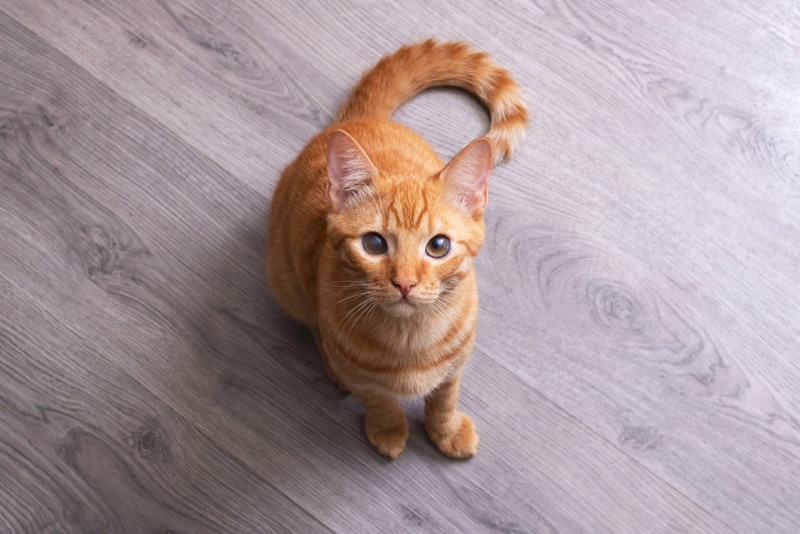
Why Should Cats Not Eat Plantains?
While a small amount of plantain on occasion should be fine, provided that your cat doesn’t react badly to it, there still could be issues. For example, they might experience gastrointestinal problems. These can range from mild, such as a stomach ache and diarrhea, to severe, leading to dehydration, but this will depend on how much plantain they ate.
Too much plantain could also potentially lead to obesity and other health conditions like diabetes. These fruits are high in carbohydrates, which if aren’t used for energy, will be converted to fat.
Also, keep an eye out for an allergic reaction, which is more likely to occur if your cat has food allergies. Most food allergy triggers tend to be things like dairy, chicken, and beef, so it would be rare for a cat to be allergic to plantains.
Still, it’s best to keep an eye on your cat after they’ve eaten a piece of plantain; look out for excessive scratching, skin redness or rashes, and head shaking. Speak to your vet if your cat seems uncomfortable or in distress after eating plantains.
What Are Healthy Treats for Cats?
The best treats for cats are ones actually made for them. Many cats love lickable treats, so these are typically a safe bet.
- Fish: Canned or cooked fish with no oils or seasonings, with any bones removed
- Meat: Plain cooked chicken, turkey, and beef
- Whole grains: Polenta, brown rice, couscous, and barley in moderation
- Eggs: Cooked, unseasoned eggs
- Vegetables: Cucumber, cooked asparagus, and broccoli
- Fruit: Bananas, strawberries, watermelon, berries, apples, cantaloupe, and mangoes
All raw meat and fish must be cooked and unseasoned. Excess salt is not recommended for cats, and ingredients like garlic and onions are toxic. Speak to your vet if you add something new or change your cat’s diet, particularly if your feline has any health issues.
Frequent Asked Questions
Can Cats Eat Raw Plantain?
No. It would be like feeding raw potatoes to your cat. Raw plantains are starchy and even more difficult to digest. You’ll want to prepare it by cooking it through by baking or boiling.
Fried plantains contain an excess of oil, which isn’t healthy for cats. Cooked plain plantains with no seasonings are okay to offer to cats on occasion.
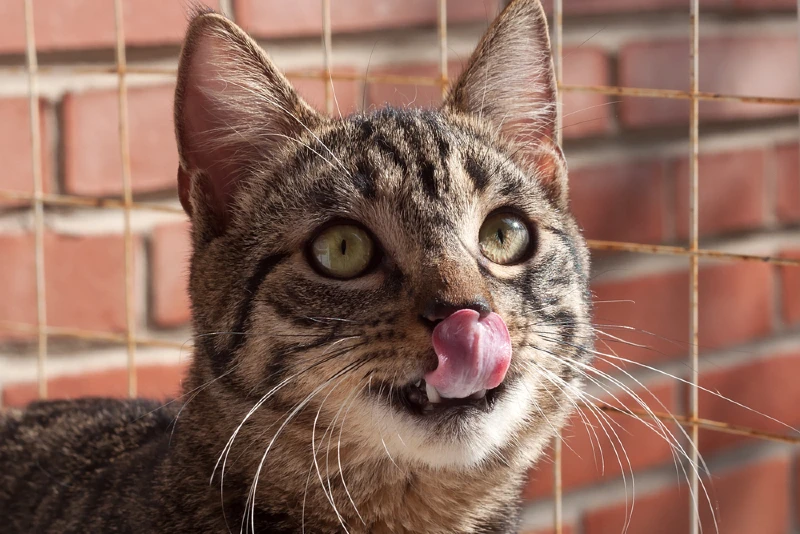
How Much Plantain Is Safe for Cats?
If your vet thinks that it’s fine and your cat seems to like it, just a few bites once or twice a week should be okay. Again, speak to your vet about adding plantains as treats and how many they recommend feeding to your cat.
Can Cats Eat Plantain Chips?
No. Plantain chips are made with oil and seasonings, which aren’t good for cats. The chips that you buy in stores will also likely contain additives and preservatives, which aren’t recommended for cats.
Conclusion
Plantains aren’t necessarily bad for cats unless your cat has a sensitive stomach or food allergies. But while plantains have a few health benefits, cats are obligate carnivores and should still get the majority of their nutrition from meat.
If your cat seems to love plantains, it’s okay to offer a bite once in a while, but there are plenty of tasty cat treats available that are formulated just for felines. Whenever you have any concerns or questions regarding your cat’s diet, don’t hesitate to contact your vet.
Featured Image Credit: Jacobo Castro Cristo, Shutterstock



